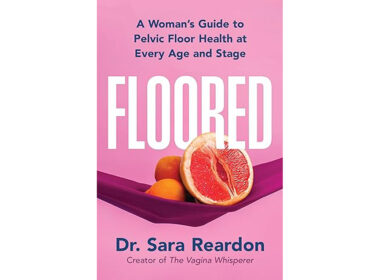Data shows that contraceptive drugs increase the risk of blood clots. Proponents for hormonal birth control argue that the increased risk in young women was a small risk to start with (between 1 and 5 of every 10,000 women), and that the increase isn’t drastic (between 3 and 9 of every 10,000). Not all forms of hormonal birth control have been shown to increase the risk of blood clots—just those that contain estrogen or certain types of progestin, which happen to be among the most popular. They include the Pill, Beyaz, Yasmin, Yaz, NuvaRing, Xulane, and Nexplanon.
Some compare the risk of blood clots while on birth control to the risk of blood clots that a woman has while pregnant or postpartum. It’s noted that the natural increase in estrogen that occurs during pregnancy and the postpartum period is much greater than what one experiences on birth control, and thus the risk of blood clots is much more elevated while pregnant or postpartum (between 5 and 20 of every 10,000 pregnant women, and 40 to 65 of every 10,000 postpartum women). First, it’s odd to compare the risks of birth control to risks inherent in pregnancy, considering one is a natural physical process and the other is the side effect of a drug—a drug that can expose women to the increased risk for blood clots for as long as she uses birth control, which could be for many years in a row. Second, the estrogen contained within hormonal contraceptives is synthetic, and not the same as naturally occurring, endogenous estrogen.
By increasing the risk of blood clots, stroke, and heart attack, hormonal contraception leads to the death of 300-400 women every year. For perspective, 415 people died of meningitis in 2023. Most states mandate meningitis vaccination for college and university students. Would they consider the same kind of prevention campaigns for the deadly blood clots caused by hormonal birth control?
References
Click a subtopic below to view scientific references for each of the following and their connections to birth control use.
This article was last updated on April 26, 2024.
For more information on blood clots and birth control, see the articles below.
-

Common painkillers raise blood clot risk in birth control users, study finds
By Caitlin Estes • January 18, 2024And how to reduce your risk -

16-year-old dies of blood clot just weeks after starting birth control
By Anne Marie Williams, RN, BSN • December 21, 2023How many teens suffer birth control-related blood clots annually? -

How inflammation might be at play in the connection between elevated weight and blood clot risk for hormonal birth control users
By Kristen Curran • January 14, 2023In the fall of 2022, stories of blood clots related to birth control use had a moment on… -

Knee surgery, blood clots, and birth control: The risks young female athletes need to know about
By Mary Fagan • May 27, 2022“Doctor explains why knee injuries are 3-times more common in teenage girls,” ran a 2022 headline from Fox’s… -

How do you know if you have a blood clot? Signs of blood clots, and how to get tested for them
By Gerard Migeon • November 4, 2020Even among young women, the risk of blood clot should be a serious consideration if they are on… -

How A Blood Clot During Pregnancy Led Me to Fertility Awareness
By Jeanette Lundgren BSN, MN • June 14, 2020Twenty-six weeks into my first pregnancy, I was solidly in the “honeymoon phase” of the second trimester. After… -

Blood Clots and Hormonal Birth Control
By Lindsay Schlegel • December 5, 2018Among the side effects of hormonal birth control that have made news in recent years is the increased… -

Birth Control, Blood Clots, and the Untimely Death of Alexandra Williams
By Anthony Williams • February 28, 2019Our story begins on April 17, 1998, at Durham Regional Hospital (now Duke Regional Hospital) in Durham, North… -

New research on birth control and blood clots reveals real risk factors
By Gerard Migeon • October 16, 2016Through our work at Natural Womanhood, we have come to know numerous families who have been tragically affected… -

What medications interfere with birth control?
By Anne Marie Williams, RN, BSN • March 7, 2024Some medications can make birth control less effective and more dangerous




